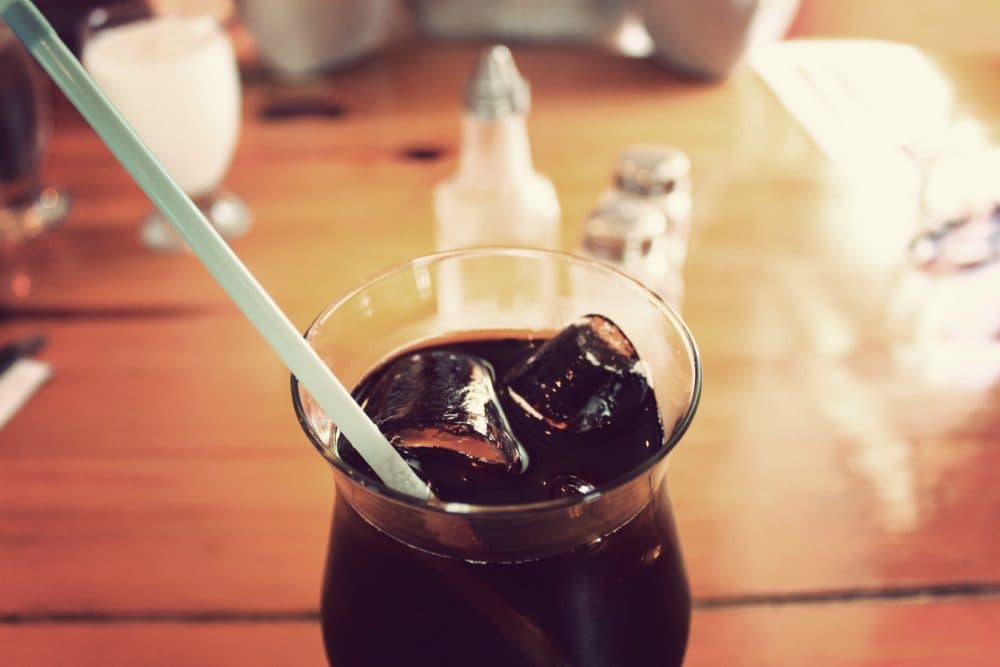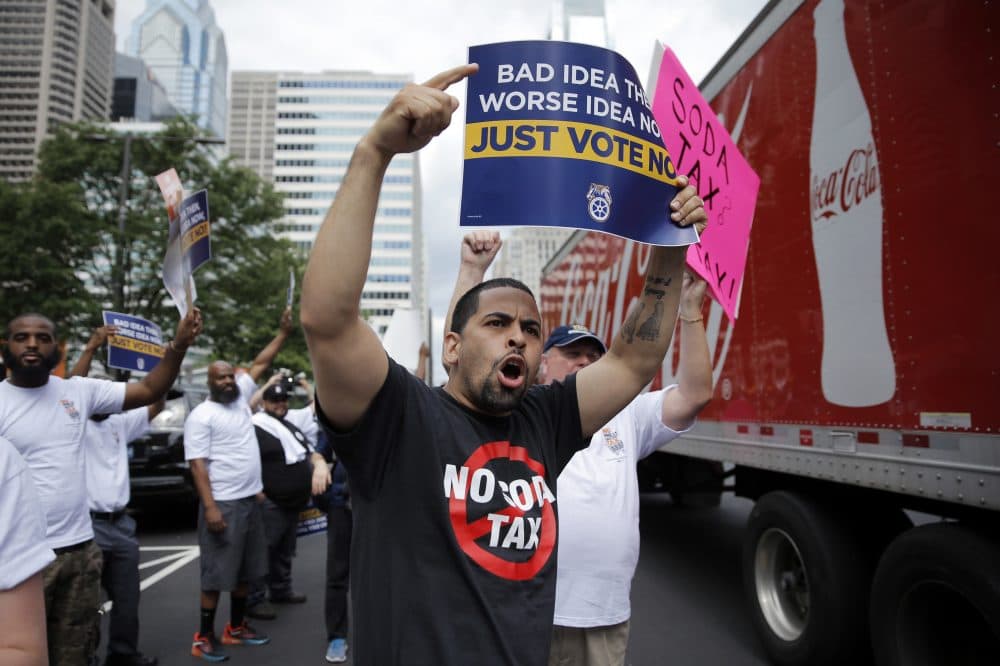Advertisement
Taxing Soda For A Cause: A Long-Losing Battle Finds Its Foothold

With summer here, Americans are swigging gallons of soda. The Philadelphia City Council began the season on a different tack: by voting to tax it. While an oddball mix of bedfellows, from the beverage industry to Bernie Sanders, lined up against the soda levy, I'd like to raise a glass of pop to the City of Brotherly Love and its fine idea.
Mayor Jim Kenney defied history in coaxing the council’s consent for his tax plan last month. Except in Berkeley, California, soda tax proposals had effervesced into oblivion 40 times in states and cities ranging from San Francisco to New York to, yes, Philly. The failures largely stemmed, media accounts suggested, from the sales pitch of supporters, who typically hectored voters about sugary beverages’ contribution to their bloating waistlines and cavity-filled teeth.
Aside from the fact that it worked, [Mayor]Kenney’s tactic of stressing the revenue benefits has something else to recommend it: It reminds us all that government must be paid for.
Kenney deep-sixed the schoolmarm routine and touted the tax as a way to raise $91 million annually toward the universal pre-kindergarten he had promised in his mayoral campaign, as well as funding municipal assets like libraries and parks. Starting Jan. 1, Philadelphia will impose a 1.5 cents-per-ounce tax on any sugary or artificially sweetened beverages sold within the city. That will boost the price of a can of soda by 18 cents, a six-pack by $1.08, and a two-liter bottle by $1.02.
Aside from the fact that it worked, Kenney’s tactic of stressing the revenue benefits has something else to recommend it: It reminds us all that government must be paid for. Unless you’re willing to forego services — and pre-K is hardly a frill — that means paying some taxes. Taxing bad things is a good place to start, even while granting that it will depress soda sales and therefore the revenue yield from the tax. (Mexico has seen a welcome drop in soda drinking after enacting a tax two years ago.) Health experts are unanimous about the benefits of reduced soda consumption.

Consumers have caught wise; soda sales have dropped by more than one fourth in the last two decades, as Americans switched to bottled water (those bottles raise environmental concerns, but that’s a debate for another day). One takeaway is the value of activism even when it doesn’t produce immediate results; all those losing soda tax campaigns still helped to alert the public that it was guzzling crap. The beverage industry’s desperate fight against such taxes — it dumped millions on ads against Kenney’s proposal — underscores its recognition that, as The New York Times put it, “Soda companies are losing the war.”
Across the ideological spectrum, Bernie Sanders’s opposition demonstrated anew why Democratic primary voters made the right choice. (Hillary Clinton endorsed the tax.) While supporting universal pre-K, Sanders said, “I do not support paying for this proposal through a regressive tax on soda that will significantly increase taxes on low-income and middle-class Americans.”
Advertisement
One takeaway is the value of activism even when it doesn’t produce immediate results; all those losing soda tax campaigns still helped to alert the public that it was guzzling crap.
Ponder the philosophy undergirding that statement: Let’s help the poor by making it more likely they’ll be sicker and die younger; it’s wrong to tax an unhealthy non-essential. With friends like that... Anyway, as the proceeds will help the poor by giving them access to vital services like education, it’s a sound tradeoff.
Why single out soda? Why not tax other junk foods? Good idea — as long as we’re willing to invest in making healthy food available in neighborhoods where it’s not. The Mexicans, bless them, also tax junk food, to good if limited effect.
Meanwhile, in light of Philadelphia, and to twist a phrase, I’d like to buy the world a Coke (just one), and gladly pay the tax.
